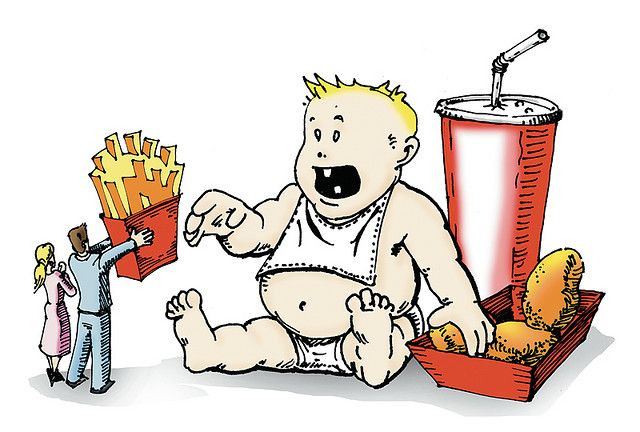UK's Childhood Obesity Crisis Quadruples Pediatric Hospital Admissions

How much strain is childhood obesity placing on the UK's National Health Service (NHS)? This is the question Dr. Sonia Saxena from the School of Public Health Imperial College London tries to answer in her new study that measured the number of pediatric obesity-related conditions that required hospital care over the last decade. Her team's findings were published today in PLoS One.
Obesity levels in the UK have doubled over the last two decades, and while childhood rates have leveled off in recent years, nearly one in five kids (aged 2 to 15) remains obese. People have blamed everything from video games to fewer parks to the widening gap between economic classes as possible causes.
But one thing is clear...rising obesity has lead to more children with serious illnesses, such as asthma and diabetes. It has also increased their likelihood of having heart disease, stroke, or cancer as adults.
To see how this 'fat crisis' is burdening the UK's NHS, Saxena and her colleagues pulled hospital admission records from a national database.
They found that 15,000 cases of obesity-related disease, in kids aged 5 to 19, required hospitalization between 2000 and 2009. Admission rates quadrupled over this time span, from 872 children in 2000 to 3,800 children in 2009.
"The burden of obesity is usually thought to have its serious consequences in adulthood, but we now see it manifesting earlier, in childhood," said Dr Saxena, who led the study. "It's clear that rising obesity levels are causing more medical problems in children, but the rise we observed probably also reflects increasing awareness among clinicians, who have become better at recognizing obesity."
Sleep apnea was the most common condition linked obesity-related hospital visits, which was followed by asthma. Pregnancy complications were a major problem for obese teenage girls.
Bariatric surgery to constrict stomach size and induce weight loss became more popular over the last decade in UK kids. Thirty-one procedures were performed in 2009 relative to one solitary case in 2000. Three out of four surgeries were performed on girls.
Prior research by Saxena's team, which included a collaboration with the University of Southern Carolina, found obese adults in the U.S. were five times more likely to lose weight if told by a doctor, and the same rules may apply to kids as well.
"It's important that doctors speak to patients about their weight, because any attempt to help their patients must begin by recognizing the problem," concluded Saxena.
Source: Nielsen JDJ, Laverty AA, Millett C, Mainous III AG, Majeed A, Saxena S. Rising Obesity-Related Hospital Admissions among Children and Young People in England: National Time Trends Study. PLoS One. 2013.
Published by Medicaldaily.com



























